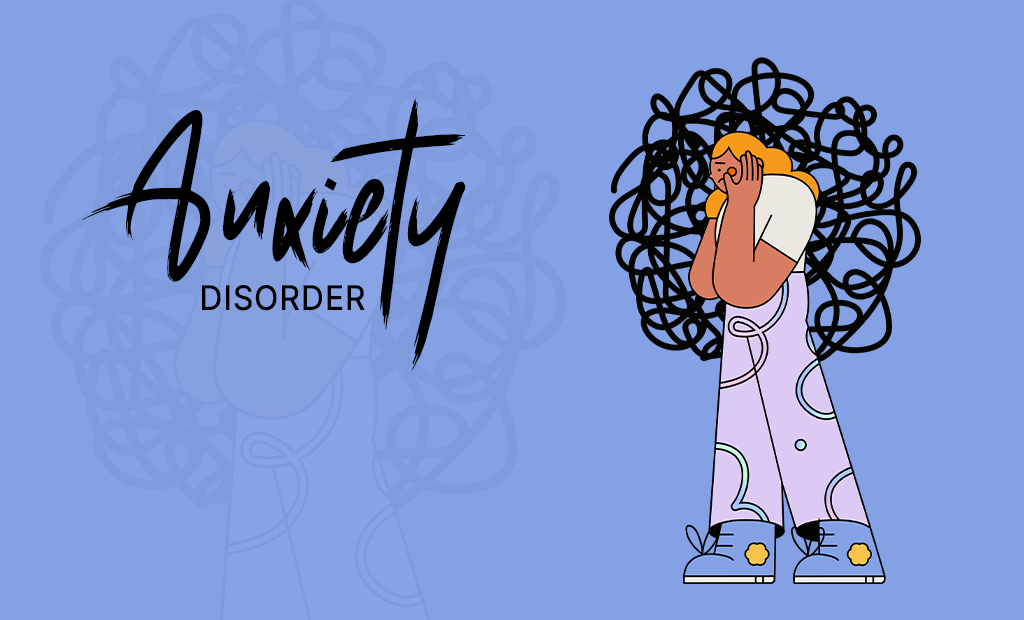Introduction:
Anxiety disorders can be debilitating, affecting individuals’ emotional well-being, relationships, and overall quality of life. Seeking counseling for anxiety disorders provides individuals with empathetic support, guidance, and effective tools to navigate their journey toward healing. This article explores the importance of anxiety disorder counseling, highlighting the benefits and therapeutic approaches that can facilitate healing and promote emotional well-being.
Understanding Anxiety Disorders:
Anxiety disorders encompass a range of mental health conditions characterized by excessive worry, fear, and heightened stress responses. Generalized Anxiety Disorder (GAD), Panic Disorder, Social Anxiety Disorder, and specific phobias are common types of anxiety disorders. These conditions can lead to physical symptoms, such as rapid heartbeat, shortness of breath, and intrusive thoughts, significantly impacting an individual’s daily functioning and quality of life.
The Role of Anxiety Disorder Counseling:
Anxiety disorder counseling plays a crucial role in providing support and facilitating healing for individuals experiencing anxiety disorders. Here are the key benefits of seeking counseling:
- A Safe and Non-judgmental Space: Anxiety disorder counseling provides individuals with a safe and confidential environment where they can freely express their fears, concerns, and experiences without judgment. Counselors create a space that encourages openness and trust, allowing individuals to explore their emotions, thoughts, and triggers associated with anxiety.
- Validation and Understanding: Anxiety disorders can make individuals feel isolated and misunderstood. Counselors who specialize in anxiety disorders offer validation, acknowledging the impact of anxiety on individuals’ lives. They provide a compassionate and empathetic understanding, helping individuals realize that their feelings and experiences are valid and shared by many others.
- Identification of Triggers and Patterns: Counselors assist individuals in identifying the specific triggers, thought patterns, and behaviors that contribute to their anxiety. Through discussions and assessments, individuals gain insights into the underlying causes of their anxiety, facilitating self-awareness and understanding of their unique anxiety profile.
- Coping Strategies and Tools: Anxiety disorder counseling equips individuals with effective coping strategies and tools to manage their anxiety symptoms. Counselors employ evidence-based techniques such as Cognitive-Behavioral Therapy (CBT), relaxation exercises, mindfulness, and breathing techniques to help individuals regulate their emotions, challenge negative thoughts, and develop healthier coping mechanisms.
- Anxiety Management and Symptom Reduction: Counseling focuses on managing anxiety symptoms and reducing their impact on daily life. By learning and practicing specific techniques, individuals gain the skills necessary to control anxious thoughts and physical sensations. This process empowers individuals to respond to anxiety in a proactive and adaptive manner, reducing its hold on their lives.
- Lifestyle and Self-Care Recommendations: Anxiety disorder counseling emphasizes the importance of self-care and lifestyle changes that support emotional well-being. Counselors help individuals identify strategies to improve sleep patterns, engage in regular physical activity, establish healthy boundaries, and practice relaxation techniques. These lifestyle adjustments contribute to overall anxiety reduction and improved mental health.
- Addressing Co-occurring Issues: Anxiety disorders often co-occur with other mental health conditions, such as depression or substance abuse. Anxiety disorder counseling addresses these complex relationships, ensuring that individuals receive comprehensive treatment and support for all their unique needs. Integrated care can enhance overall healing and recovery.
- Building Resilience and Confidence: Counseling fosters resilience by helping individuals develop adaptive coping strategies, build self-confidence, and improve problem-solving skills. With the support of a counselor, individuals can challenge their fears, confront anxiety-inducing situations, and gradually expand their comfort zones. This process contributes to increased self-efficacy and a sense of personal growth.
- Relapse Prevention and Long-Term Support: Anxiety disorder counseling not only focuses on immediate symptom relief but also emphasizes relapse prevention and long-term support. Sugar Land Texas Psychiatrists work with individuals to develop personalized relapse prevention plans, identify potential triggers, and provide ongoing support and guidance throughout their journey to recovery.
Conclusion:
Anxiety disorder counseling offers empathetic support, guidance, and effective therapeutic interventions to individuals struggling with anxiety. Through counseling, individuals gain a deeper understanding of their anxiety, learn practical coping strategies, and develop resilience. Empowered by a safe and non-judgmental space, individuals can navigate their journey towards healing, finding relief from anxiety symptoms, and restoring emotional well-being. If you or someone you know is experiencing anxiety, seeking professional counseling can be a vital step in reclaiming control, fostering personal growth, and building a fulfilling and anxiety-free life.


